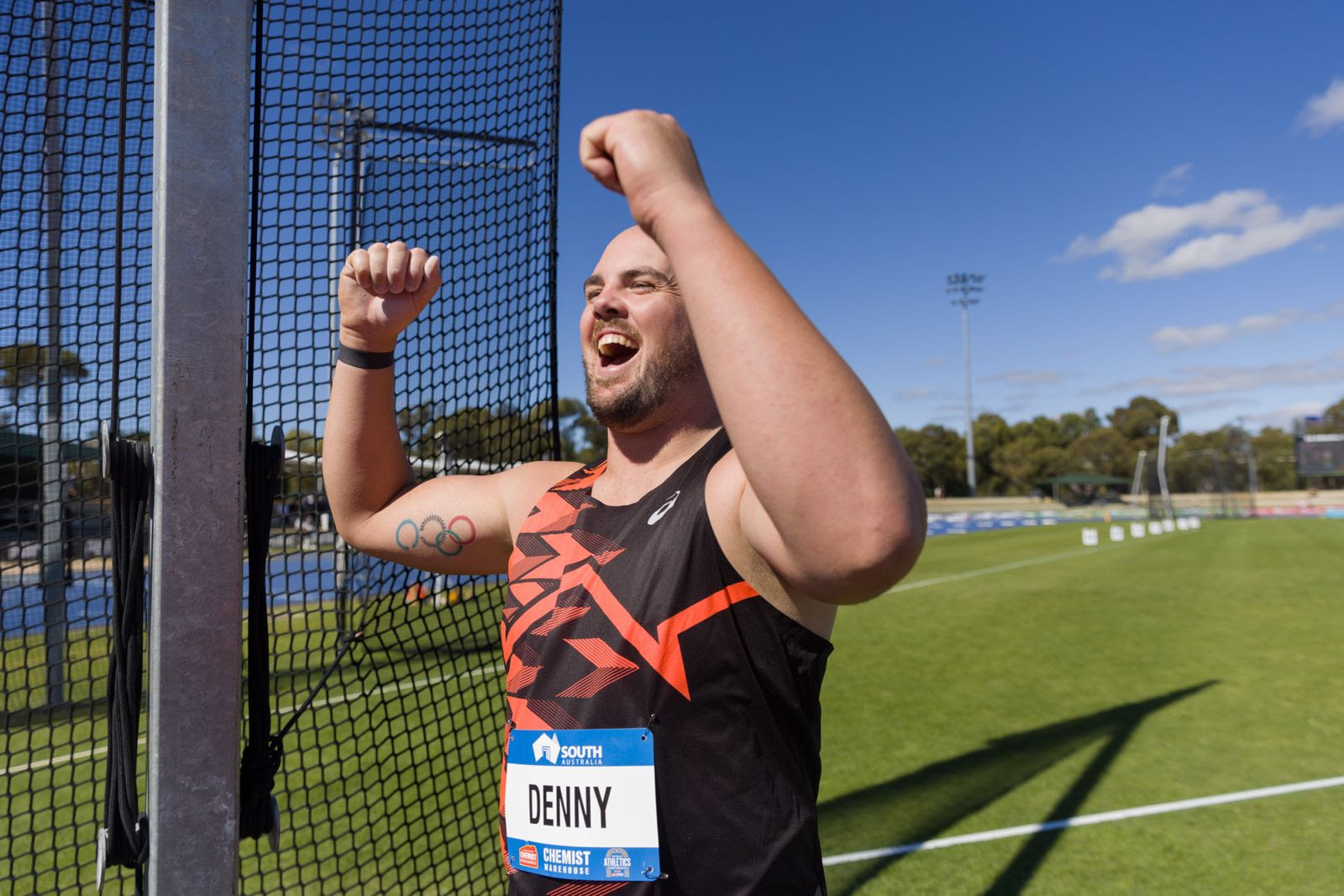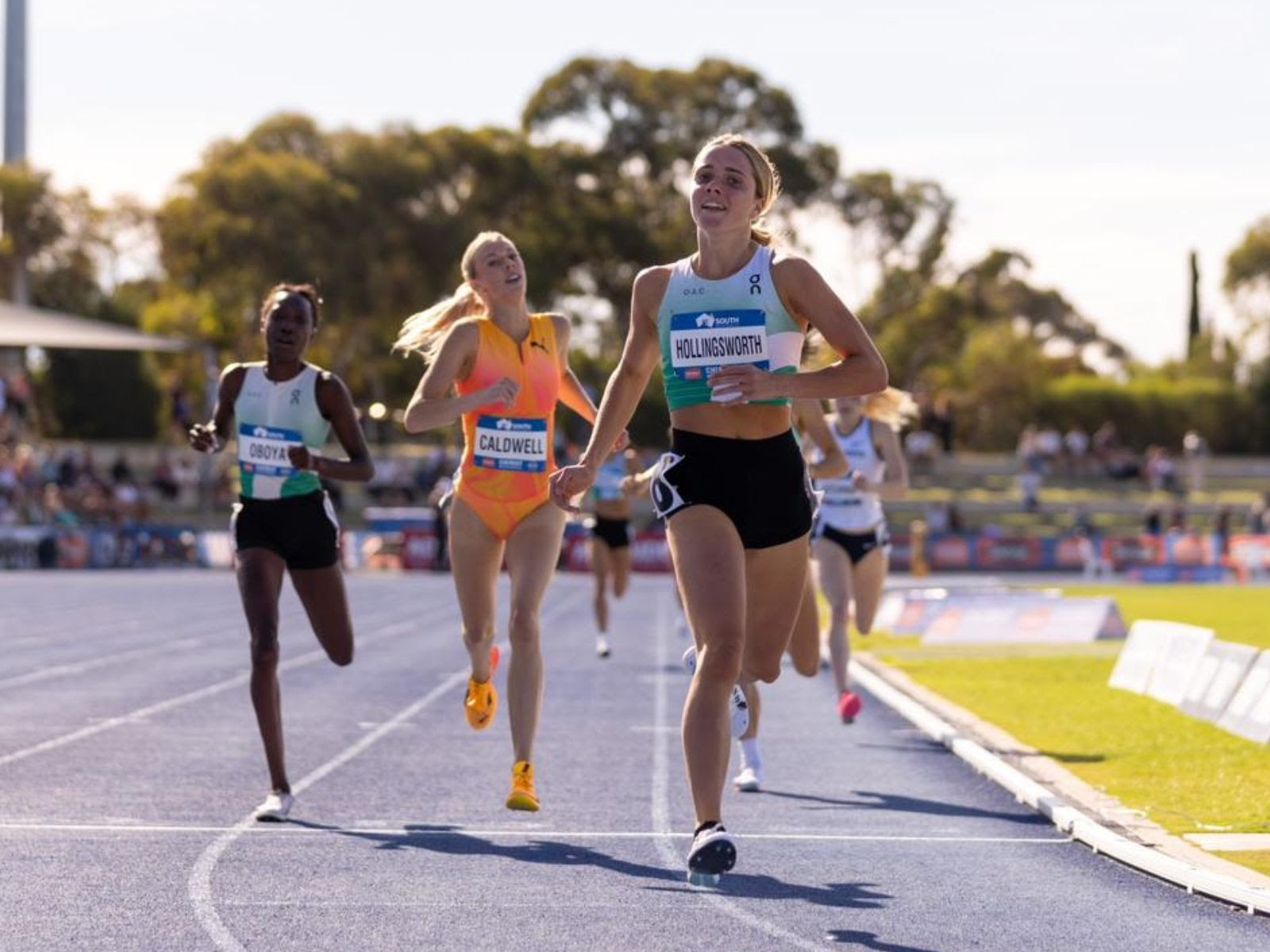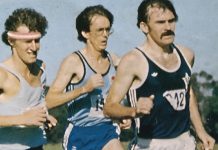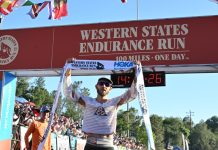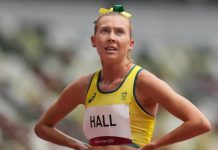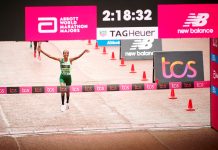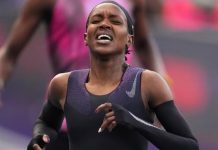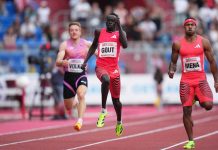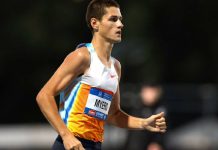Well then. That was something, wasn’t it? All summer the middle-distance events have been the spotlight of Australian athletics and, come the national championships, they delivered again. In spades.

Ultimately, though, one or two exceptions aside, the form held up. After all that churning, the cream rose to the top (I was tempted to write “the same old clots”, but that would never do!).
There were great performances dotted throughout the meeting. Matt Denny shone brilliantly with an epic series of throws in the discus, culminating with his winning distance of 69.35. We had the rare sight, too, of two major championship medallists clashing in the women’s high jump in which – giving the highest qualification only – Olympic silver medallist Nicola Olyslagers cleared 2.01 metres to defeat world champion Eleanor Patterson.
In the women’s javelin, too, world championships bronze medallist Mackenzie Little defeated former Commonwealth champion Kathryn Mitchell and dual world champion Kelsey-Lee Barber.
But for sheer excitement and depth of competition, the middle distances had it won hands
(or feet?) down. Fields were deep, if not quite as bemedalled as those mentioned above,
competition was fierce, titles and places in the Olympic team on the line.
After winning an epic men’s 1500 metres final, Adam Spencer nailed it with a quote in the
post-race interview. Asked if he’d been advised of the depth of the field he would be facing,
the US college student affirmed he had.
“They told me to come prepared,” quoth Spencer. And like a good boy scout, he did. And he
won. And he should have been (but wasn’t) straight into the team. He will be as soon as
possible, you would think.
View this post on Instagram
In the end, Spencer was just one of several athletes who feel victim to what to this writer
seems a too-literal interpretation of the requirement for athletes to run at least two meetings in the domestic series to qualify for inclusion in the first tranche of Olympic nominations (technically it is an AOC, Australian Olympic Committee, team, not an Athletics Australia one).
Spencer, co-world champion pole vaulter Nina Kennedy, men’s pole vault bronze medallist
Kurtis Marschall and javelin bronze medallist Little, all presumably were victims of this rule, a variation of which has always been there but rarely – if ever – enforced until now.
Anyway, that didn’t take away from the race, in which seven men (at least) were in a position to win at the bell and the same seven could still win as they came off the final bend. Jess Hunt ran a good final straight, Ollie Hoare a better one, but it was Spencer who closed the best his 3:37.68 edging ahead of Hoare’s desperate dive for the line in 3:37.83 and Hunt’s 3:37.88.
Stewart McSweyn and Cameron Myers followed as just 1.06 seconds split the first five
finishers.
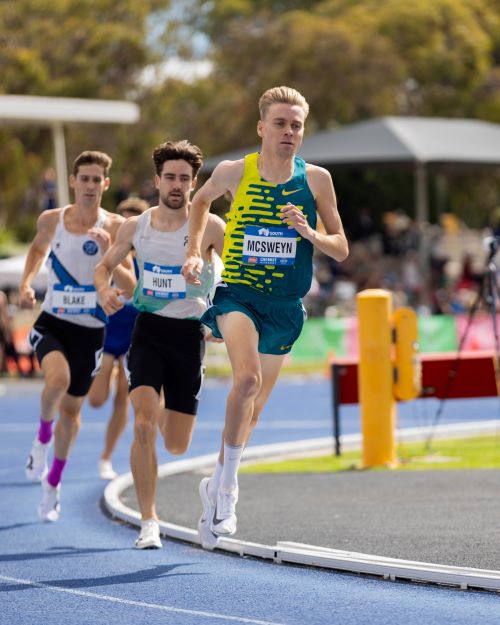
Be prepared indeed. Be very prepared.
The women’s race was not as close ultimately, but it did throw up a selection dilemma.
Linden Hall made the first move to try to win it, surging to the front after a pedestrian first 600 metres to launch a long run for home. Ultimately, all that achieved was to make Hull run faster. She tracked the move and then sprinted past on the final lap.
Hall was also picked off late in the race by Griffith, who does not have an automatic
qualifying standard. So, the Australian record holder has to wait and presumably the 1500
door is now re-opened to Claudia Hollingsworth and Abbey Caldwell who chose to run the
800 only. Great to see Griffith back in contention but now both she and Hall are at risk of not making the final three.
View this post on Instagram
Likewise, McSweyn and Myers are still in the game for the men’s 1500.
The women’s 800 resembled the men’s 1500 in depth, quality and the race it finally
delivered. The first four women all broke two minutes, witness to the depth of talent around the event.
Like Hall, 800 national record holder Catriona Bisset is in danger of being the one to miss
out. Like Hall, she was also picked off up the straight after trying, but failing, to break the
race open.
In the 800, it was Bendere Oboya who did the damage, passing Bisset half-way up the
straight to take third place and leave the national record holder in the selection hot seat.
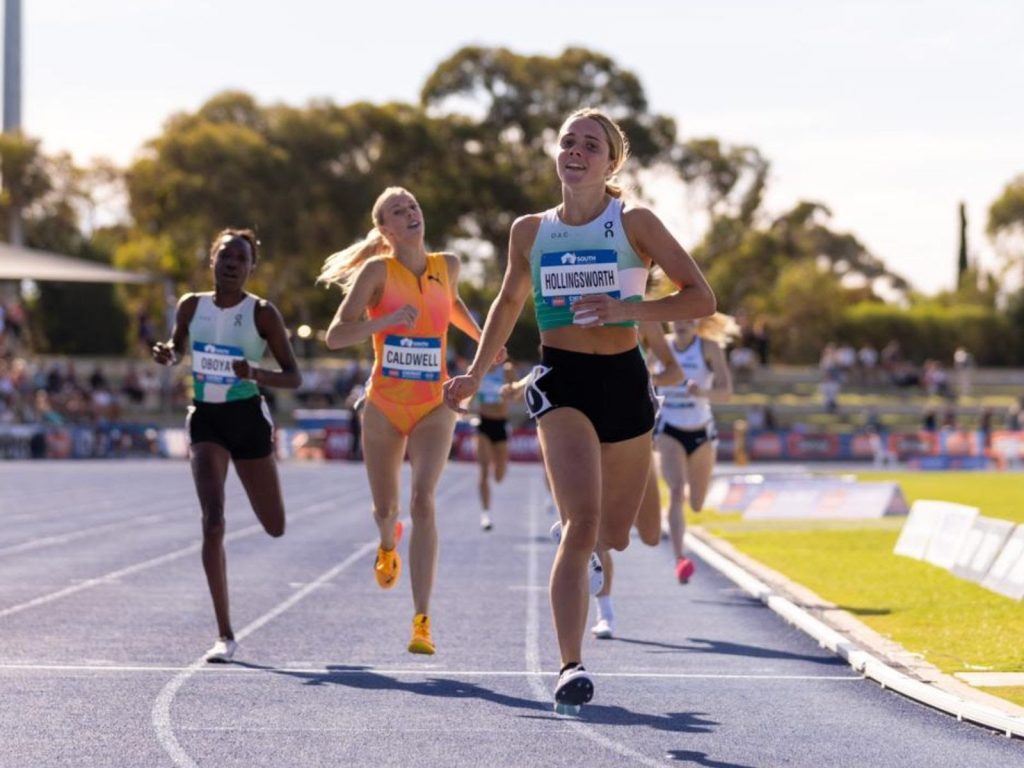
Up front, it was Hollingsworth and Caldwell fighting it out off the bend. Caldwell looked
poised to strike but the 19-year-old lifted impressively to draw away to win in 1:58.40 to
1:59.01.
Finally, what about Luke Boyes. At the start of this season, the 20-year-old’s PB was
1:46.69. At the end of it he is national champion, a 1:44.73 runner and seemingly an
Olympian. The manner of his win was striking. Bol broke out of a box with 200 to go and
looked all over the winner when he passed Boyes 30 metres into the final straight. But the
red-vested redhead lifted again, repelling the challenge and going on to a famous win.
View this post on Instagram
Boyes was just 0.03 seconds outside the Olympic qualifier. Even if he does not achieve that
before Paris, he is a good chance to qualify on the rankings. It has been a meteoric rise,
overshadowed a little by the similar rise of even-younger Peyton Craig who finished third in
the final.
If you came to the national championships just to watch the middle-distance races you
certainly would not have left disappointed. It may take all the way to the deadline day to sort through all the ramifications, but it looks certain Australia will be represented fully and
competitively in Paris.
